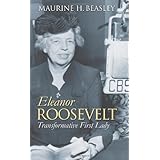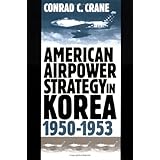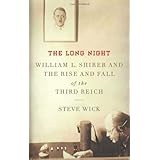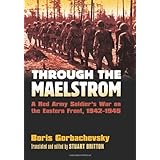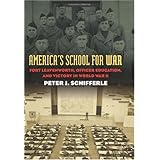
Average Reviews:

(More customer reviews)Are you looking to buy America's School for War: Fort Leavenworth, Officer Education, and Victory in World War II (Modern War Studies)? Here is the right place to find the great deals. we can offer discounts of up to 90% on America's School for War: Fort Leavenworth, Officer Education, and Victory in World War II (Modern War Studies). Check out the link below:
>> Click Here to See Compare Prices and Get the Best Offers
America's School for War: Fort Leavenworth, Officer Education, and Victory in World War II (Modern War Studies) ReviewI was very pleased to see my copy of Dr. Schifferle's work arrive. First, I note that the author has outstanding credentials for this topic. Here, the biographical information is understated for the general reader, but speaks volumes for people who know anything about the School of Advanced Military Studies. Clearly, Dr. Schifferle is an accomplished historian and an expert in his field. Second, I appreciate both the bibliography and footnotes; I used both to gain insight into the scope and depth of the author's research. For example, I surveyed the sources that he used for the discussion on doctrinal development in the 1920's and found that material to be very interesting, to include the origins of the FM 100-5 manuals most professionals are so familiar with. Third, the text is well written prose with excellent analytical structure and substantive support for his arguments. In essense, I learned a lot about the Army as a "learning institution" in the inter-war years, showing the intellectual growth of officer corps as a whole (as opposed to the "intellectual leaders" that we so frequently read about). This book gave me a deeper appreciation for the relationships between experience (i.e. WWI), a flowering intellectual discourse (i.e. in professional journals), experimentation leading to new theory, resulting in new doctrine disseminated through the school system, and subsequently adjusted by new experience (i.e. WWII). This book clearly demonstrates the value of professional military education, illustrating many important concepts and innovations that reached fruition in WWII.America's School for War: Fort Leavenworth, Officer Education, and Victory in World War II (Modern War Studies) OverviewWhen the United States entered World War II, it took more than industrial might to transform its tiny army--smaller than even Portugal's--into an overseas fighting force of more than eight and a half million. Peter Schifferle contends that the determination of American army officers to be prepared for the next big war was an essential component in America's ultimate triumph over its adversaries. Crucial to that preparation were the army schools at Fort Leavenworth.Interwar Army officers, haunted by the bloodshed of World War I's Meuse-Argonne Offensive, fully expected to return to Europe to conclude the "unfinished business" of that conflict, and they prepared well. Schifferle examines for the first time precisely how they accomplished this through a close and illuminating look at the students, faculty, curriculum, and essential methods of instruction at Fort Leavenworth. He describes how the interwar officer corps there translated the experiences of World War I into effective doctrine, engaged in intellectual debate on professional issues, conducted experiments to determine the viability of new concepts, and used military professional education courses to substitute for the experience of commanding properly organized and resourced units.Schifferle highlights essential elements of war preparation that only the Fort Leavenworth education could provide, including intensive instruction in general staff procedures, hands-on experience with the principles and techniques of combined arms, and the handling of large division-sized formations in combat. This readied army officers for an emerging new era of global warfare and enabled them to develop the leadership decision making they would need to be successful on the battlefield. But Schifferle offers more than a recitation of curriculum development through the skillful interweaving of personal stories about both school experiences and combat operations, collectively recounting the human and professional development of the officer corps from 1918 to 1945. Well crafted and insightful, Schifferle's meticulously researched study shows how and why the Fort Leavenworth experience was instrumental in producing that impressive contingent of military officers who led the U.S. Army to final victory in World War II. By the end of the book, the attentive reader will also fully comprehend why the military professionals at Fort Leavenworth have come to think of it as the "Intellectual Center of the Army."This book is part of the Modern War Studies series.Want to learn more information about America's School for War: Fort Leavenworth, Officer Education, and Victory in World War II (Modern War Studies)?
>> Click Here to See All Customer Reviews & Ratings Now
